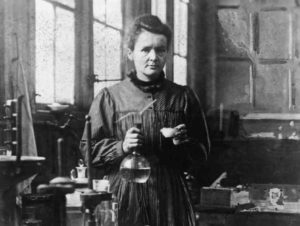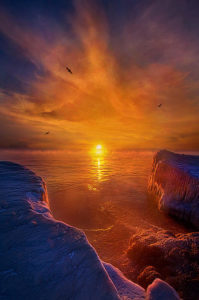What Writers – and other Artists – Can learn from Scientists
 I am often amazed that I am a speculative fiction writer, considering I grew up surrounded by scientists and other pragmatic thinkers.
I am often amazed that I am a speculative fiction writer, considering I grew up surrounded by scientists and other pragmatic thinkers.
My late father was a brilliant virologist, my older brother (who conducted experiments in our kitchen when I was young) is an epidemiologist, and my younger brother works in horticulture. My mother, while not a professional scientist, definitely possesses their logical, skeptical, mindset.
I am the odd one, with my crazy dreams and even wilder (in their mind) books. “How DO you come up with those stories?” my mother asks. Well, I am not entirely sure, although a lifetime of reading speculative fiction might have left its mark. (Not to say my family does not read—they are actually great readers. But they don’t read speculative fiction of any kind. Except mine, of course!)
That being said, I do feel that there are two things writers, and other artists, can learn from science: 1.) the need to experiment, and 2.) the understanding that nothing is a “failure” if it advances one’s understanding of a particular theory, concept, technique, or craft.
Scientists know it may take years of experiments—many unsuccessful—to reach a breakthrough. Their successes are bought with time, and failure after failure.
But a true scientist does not give up due to failed experiments. They may rework their ideas,  conduct different experiments, or choose another path toward their goal, but they do not abandon their work simply because one (or two, or many) of their attempts fail. Take, for example, Marie Skłodowska Curie, who worked with her husband, Pierre, on theories related to radioactivity. In 1902—based on research begun over thirteen years before—they took a ton of pitchblende and reduced it to one-tenth of a gram of radium chloride, but pure radium metal was not isolated from this until eight years later, in 1910. Yes, it made them household names, but years and years of research, plus eight years of painstaking labor—and many failures—were required to achieve this “overnight” fame!
conduct different experiments, or choose another path toward their goal, but they do not abandon their work simply because one (or two, or many) of their attempts fail. Take, for example, Marie Skłodowska Curie, who worked with her husband, Pierre, on theories related to radioactivity. In 1902—based on research begun over thirteen years before—they took a ton of pitchblende and reduced it to one-tenth of a gram of radium chloride, but pure radium metal was not isolated from this until eight years later, in 1910. Yes, it made them household names, but years and years of research, plus eight years of painstaking labor—and many failures—were required to achieve this “overnight” fame!
So what does this say to writers and other artists? Well, for one thing, we can learn to be more fearless in experimenting with different literary forms, genres, age classifications, concepts, and themes. So what if we discover that neither middle grade literature nor adult Romance are truly part of our skill set? One (or two, or three) not quite-so-successful manuscript(s) never destroyed anyone. In truth, I believe writers are not always as insightful about our own talents as we would like to think. We say we cannot write a certain thing, but how do we know unless we experiment? I know this is true about acting. Since I was a theatre major, I studied acting, although it was never the focus of my career. But one thing I did learn—my most successful forays into acting were in roles I would never have selected as being “right” for me. In the same way, we may not know what we write best until we experiment, and write it!
Science also tells us nothing is a failure if you can learn something from the process. We may all have a book (or books) that do not do well in the marketplace. Science says—do not disavow those books, or feel ashamed of your talent. Instead, study those books, and attempt to understand why they were unsuccessful. Was it the book, or the market at the time? Are there things we can change in future manuscripts, or in our marketing, or in other areas, to avoid such problems in the future? Alternately, should we attempt to experiment with another genre, style, or what-have-you to see if that changes the equation?
So I challenge authors—including myself—to experiment more and worry about “failure” less. Try something new and different, and see what happens. Don’t be so discouraged if some books don’t achieve the goals set for them. Learn from that process and try again. And again. And again. Take another path, ask “what if?” and follow where those wild thoughts lead us.
Eventually, we may illuminate the world with our very own “overnight” success!




